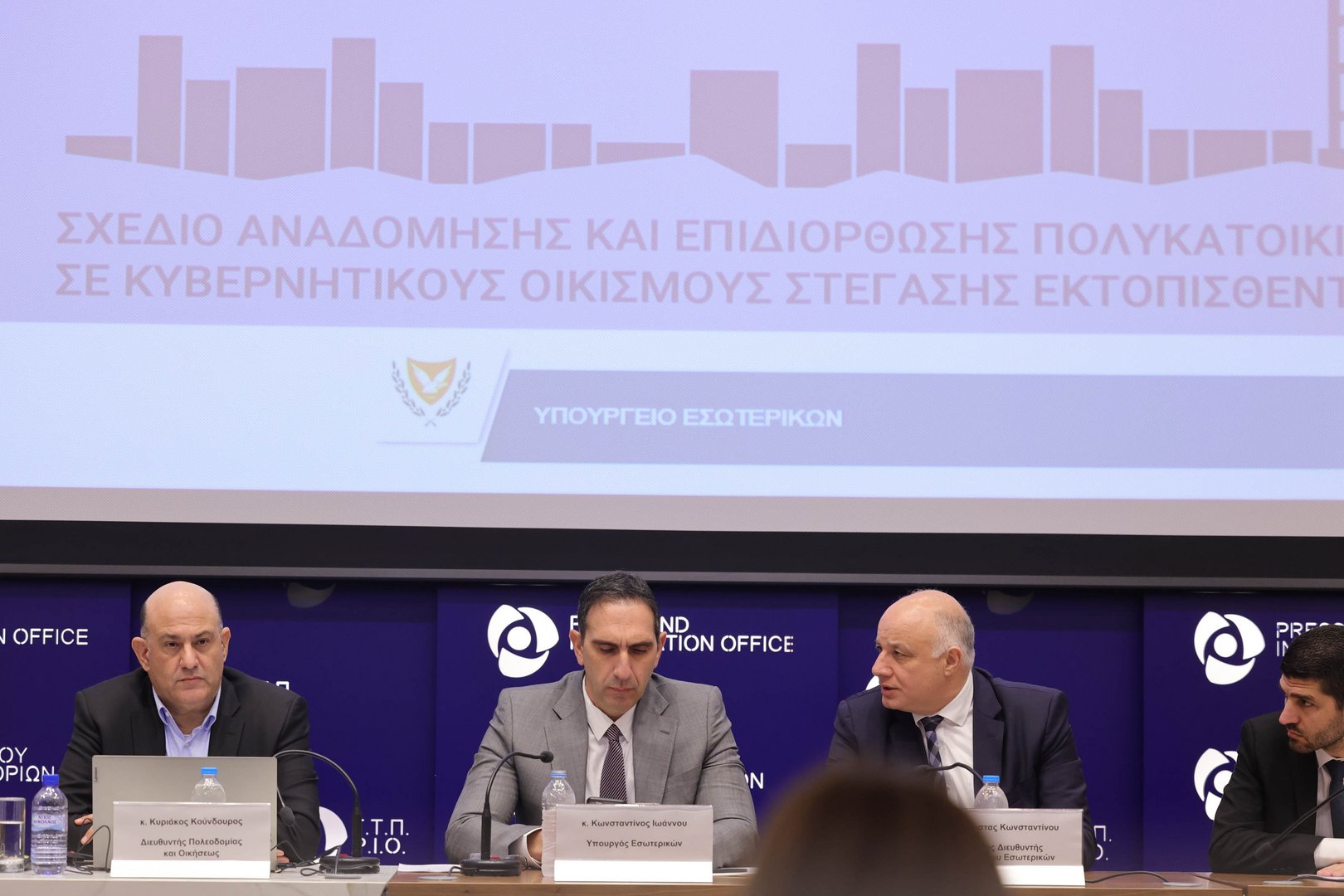The government on Monday unveiled an ambitious programme to help thousands of people living in dilapidated refugee housing estates, with an estimated total price tag of €130 million.
Dubbed ‘Ktizo’ – meaning ‘build’ in Greek – the scheme will provide grants to people currently living in condemnable buildings and who choose to relocate to newly-constructed buildings, or alternatively subsidies for those choosing to opt out and instead rent in the private sector.
At a news conference, Interior Minister Constantinos Ioannou called the scheme “the most drastic intervention by the state in housing over the last 50 years.”
He said the scheme would act as the benchmark for tackling the long-running problems faced by people living in government estates.
“This scheme is not the end of the road. It is the start of a major drive, in the context of forging a comprehensive housing policy,” Ioannou noted.
The state of buildings in refugee housing estates had recently come under scrutiny, after it emerged that 43 complexes are dangerous and should be condemned, while another 315 were deemed un-repairable either because of structural problems or because repairing them would be unprofitable.
In discussions in parliament, MPs had heard how many of these buildings are dangerous to live in – pipes hanging down, plaster crumbling, dampness, and mold.
Often residents had to rely on quick fixes such as cosmetic repairs on facades.
Ioannou said that in the coming days the government will draw up a campaign for informing beneficiaries about the scheme. This would include meetings held at refugee housing estates, as well as public service announcements in the media.
The programme concerns 358 buildings (3,128 apartments) in total, in housing estates in the Nicosia, Limassol and Larnaca districts.
Of these buildings, 43 have been classed as having critical stability/construction issues. Priority will be given to these dangerous buildings, with work (demolition and construction of new replacement buildings) to begin in the first year and lasting for three-and-a-half years.
Under the timeline given during the presentation, the first step involves publishing the list of the 43 dangerous complexes (375 apartments). Next, tenants will evacuate, and a rent subsidy for these people will kick in.
Beneficiaries will then be informed about the details of the grant scheme and their options. The beneficiaries will next decide whether they want to participate in a scheme to receive a new apartment, or to opt out and receive a one-off payment.
Once the entire process is completed, people opting in will be issued with new title deeds.
The scheme categorises beneficiaries according to whether they are first-generation displaced persons, latter-generation displaced persons by inheritance, or persons who are not displaced and who bought the apartments from displaced persons.
Those opting to be relocated to new buildings to be constructed within refugee housing estates, will receive a grant covering part of the cost of construction – the rest they must pay out of pocket.
For example, for a single-bedroom apartment with a total financing cost of €40,000, a beneficiary will receive a €30,000 grant, and contribute €10,000.
Those living in refugee estates but who are not themselves displaced persons, will have to pay the full amount out of pocket.
As for the rent subsidies, these will be €400 a month for a single-bedroom apartment, €600 for two bedrooms, and €800 for three bedrooms.
The duration of the rent subsidy for displaced persons will be 24 months where a building is to be demolished, and 12 months for temporary relocation while the current building is under repair.
The scheme also provides for incentives for private-sector contractors – for example enhanced building coefficients beyond those normally permitted by the applicable zoning.
The spaces earmarked for new housing estates are in Nicosia (the Strovolos III estate, the Apostolos Loukas estate in Latsia, and the Ayios Eleftherios estate also in Latsia. In Limassol, the Makarios III and Ayios Athanasios estates; and the Tsiakilero estate in Larnaca.







Click here to change your cookie preferences